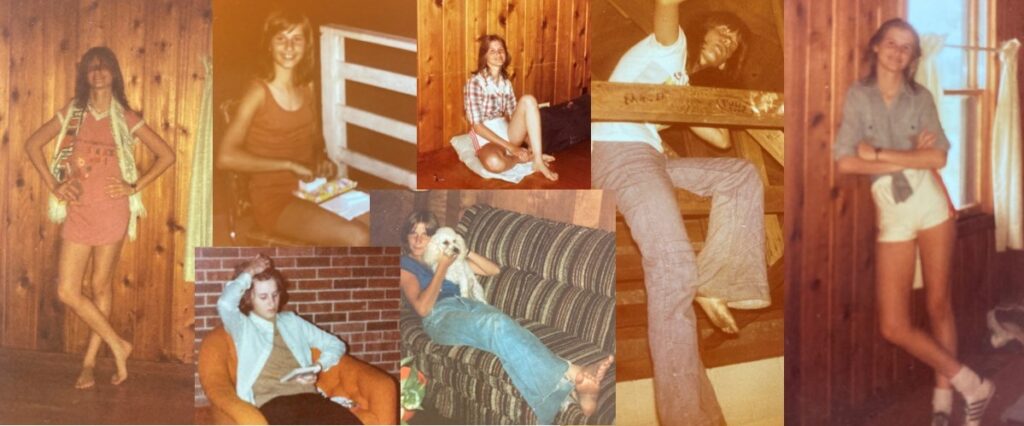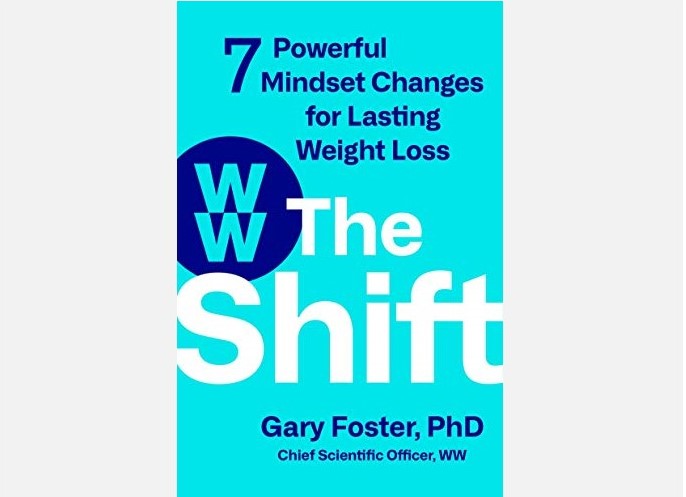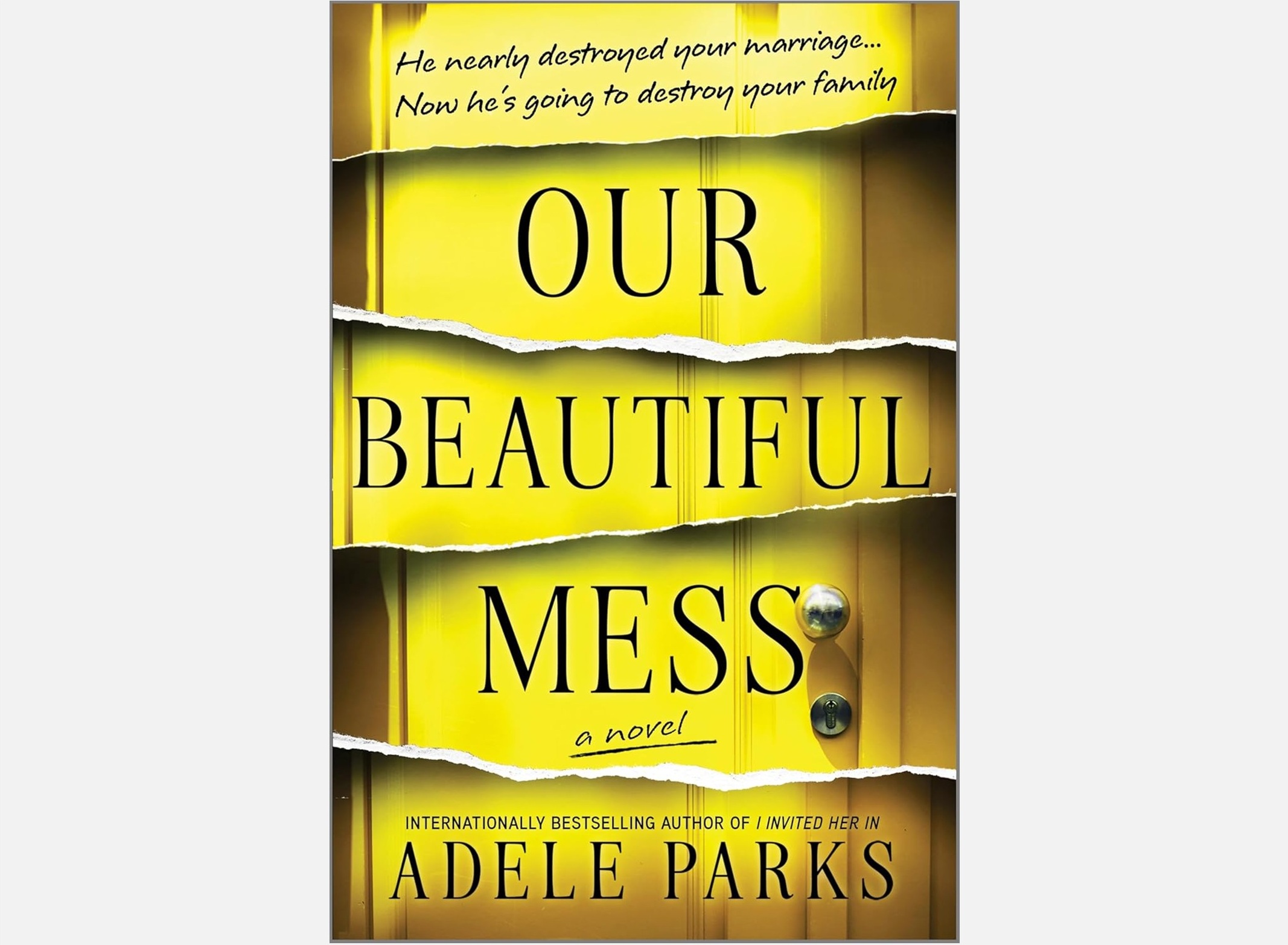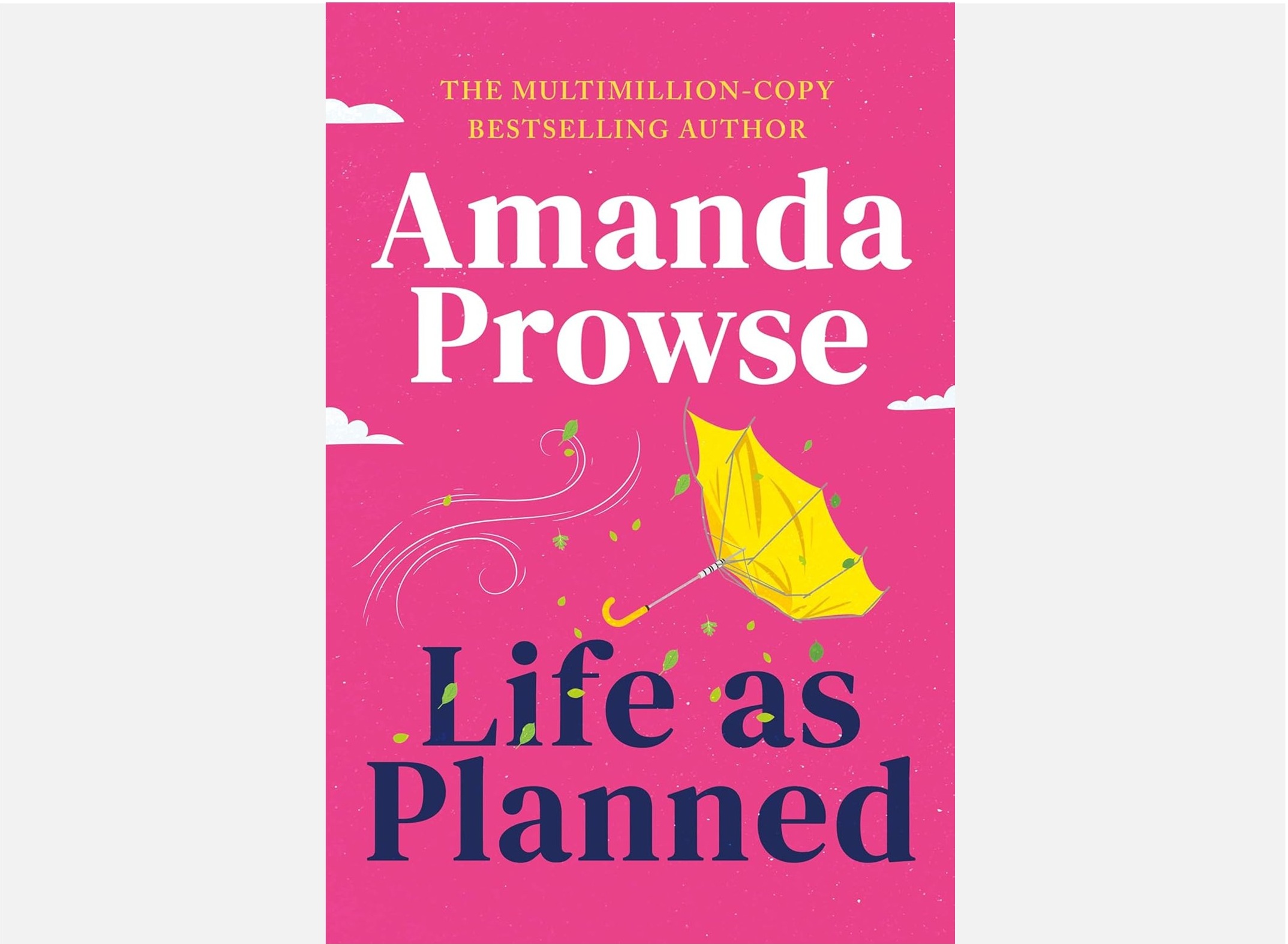Story for the Week
It is said that acknowledging a problem is the first step in solving it. Well, I have a weight problem. The problem is that I have a lot of it, and I need to get rid of it. And that’s the biggest challenge, isn’t it?
I haven’t always been overweight. In fact, when I was in middle school, my mother was convinced I had a tapeworm because I ate like a horse and still managed to be 5’9″ and weigh 97 pounds. The doctor told her it was just a fast metabolism and that it would slow down over time. After I broke my arm in sixth grade and had to sit out of P.E. for three months, I gained nine pounds. By the time I finished high school, I was a much more balanced 135.

Then I started college. I was away from home, eating a lot of fried food, snacking on Oreos and Gummi Bears, and drinking a lot of Mountain Dew. Late nights in the journalism lab during deadlines resulted in a lot more snacking and a lot less moving around. When I graduated, I wasn’t ridiculously heavy, but I had put on about 40 pounds. So for 11 years, the yo-yo crept up.
I worked night shift as a proofreader after graduation, starting at 5:30 in the evening and usually finishing around 3:30 in the morning. I’d get up around 11. I remember one of my bosses making a comment about how I didn’t tuck my shirt into my jeans (that was the style then), and it made me self-conscious. I decided to start riding my bike in the mornings after I woke up. The first day, I went all out as fast as I could and barely made it a mile, so I slowed down and improved a little bit each day. I dropped 35 pounds in about four months, and a seamstress had to re-measure me and completely re-cut the bridesmaid’s dress I would be wearing in my cousin’s wedding. That was really the beginning of the yo-yo cycle.
Yo-Yo Up
From that job, I went to an office day job, and eventually I started working later and later, and the weight started to come back on. I wasn’t exercising, and as is the case with many women, I am an emotional eater. Stress makes me want to snack, and I usually snack on something sweet. I left that job for a new one, just as crazy, just as stressful. At some point, one of my friends had taken a picture of me with a birthday cake, and I didn’t like the way it looked.
Yo-Yo Down
So one evening when I was up late working and saw an infomercial for the Six-Week Body Makeover, I decided to try it. (That’s why they air infomercials late at night, right? People are more susceptible to impulse purchases.) Now I had gained enough weight that six weeks wasn’t nearly enough for me, but I was diligent about the program. I cut out dairy and bread, which would come back into the eating plan once I was in the maintenance phase. I prepared a week’s worth of meals every weekend so I could grab something to take to work each morning. I bought a treadmill and invested in Leslie Sansone’s Walk Away the Pounds series. They opened a 24-hour gym near my apartment, and I joined. It didn’t matter what time I left work. I went straight to the gym. I walked along the Chicago lakefront on my lunch hour. I lost 70 pounds, and I was 30 pounds from my goal.
Yo-Yo Up
Then I met Dennis and got married. You’ve heard the phrase “fat and happy,” right? Where it could have worked out that I motivated Dennis to have a stricter diet, it actually went the opposite way. Dennis was part Indian and grew up in Trinidad. Flavor was important to him, and the food I prepared on this plan was pretty bland. I didn’t care. I could eat the same thing for dinner five nights a week. But Dennis cared. We were newlyweds, so I started trying to prepare meals for us that had a bit more flavor. I tried to make some Trinidadian dishes, which meant more butter, more oil…and more weight. After a while, the weight came back, and extra pounds usually come back with even more pounds.
Almost the entire time we were married, my weight crept up a little at a time. I gained 35 pounds when I got pregnant with Corinne, and I never lost it. By the time I was at my current company, I was (again) the heaviest I had ever been. I started having trouble with high blood pressure, and my doctor put me on medication but told me that losing even 10 pounds would help.
Yo-Yo Down
I started having yogurt for breakfast. I ate more salads. I started walking. I was able to take off 20 pounds on my own. Then my company introduced a wellness program. I was talking with a co-worker, and she mentioned Weight Watchers (now re-branded officially as WW). She thought I would do well with a program like WW because it’s really great if you like to cook…and I do. I hesitated a bit at the cost, but when I talked to Dennis about it, he said, “We spend more than that a month on fast food, and I think that’s a much better use of the money.”
I will say this. I LOVE the WW program. I embraced it, and the first year, I lost 65 pounds. I never missed a workshop or a weigh-in. When we were on vacation in New York, I dragged my sister-in-law to a workshop. I bought all of the foods I regularly ate so that I could avoid the oil and butter in the meals my mother-in-law cooked. I splurged once in a while on higher-fat treats, and that’s the beauty of the WW program. You don’t have to deprive yourself of anything. You can eat whatever you want as long as you track the points. If you want a Reese’s Miniatures Peanut Butter Cup, you just have to make sure you track the three points and balance it out with zero-point foods. (And no, I won’t tell you what those are. I pay monthly for this program, so I’m not going to give it to anyone for nothing. 😏)
Yo-Yo Up
Now you remember what I said about being an emotional eater? Well, I don’t think I’ve ever had more cause to eat my emotions than when we got Dennis’s pancreatic cancer diagnosis. I will readily admit that I stopped caring about tracking and eating well because I was eating my fear and my anger and my sadness. I didn’t even talk about it at a workshop until three months after the diagnosis. And then COVID shut down the in-person workshops, and it became increasingly harder to feel the support I so desperately craved from the workshops.
For the last two and a half years, I have been eating my feelings. I don’t remember the last time I tracked a meal, let alone an entire day. My company recently offered a benefit for weight loss that I enthusiastically signed up for. I’m attending the sessions each week, but I’m still struggling to track, and I haven’t yet been motivated to get back to exercising.
Then one day, I came across a book on NetGalley that caught my eye because the cover looks like a WW product box. It’s called The Shift: 7 Powerful Mindset Changes for Lasting Weight Loss by Gary Foster. Dr. Foster is an adjunct professor at University of Pennsylvania, a clinical psychologist…and the Chief Scientific Officer at WW. Of course, I requested it immediately. I know WW works, and I hoped reading the book would get me back to my mindset at the beginning of my WW journey. I am glad that I was able to read it pre-publication so that I could talk about it at the workshops I just started attending again.
Between WW and the program through work, I hope to get the yo-yo to go back down and stay there. I know it’s a marathon, not a sprint, as one of my former CEOs liked to say. More importantly, I know I can be successful with this program because I’ve done it before. I just have to be in the mindset to do it (easier said than done, I know).
Check out this book by Dr. Foster. I think you’ll find it worthwhile, and you might decide to join me in WW after you read it.
Book Review
⭐⭐⭐⭐ ⭐
5 stars for The Shift: 7 Powerful Mindset Changes for Lasting Weight Loss by Gary Foster
233 pages
Publisher: St. Martin’s Press
Publication Date: October 5, 2021
I received an advance copy of this title from NetGalley and St. Martin’s Press.
Publisher’s Description
There are so many myths surrounding weight loss: Setbacks mean failure. Big results require big goals. You need to power through alone. You have to hate your body to lose weight. Happiness awaits you only at the end of the journey.
All of these are untrue, unhelpful—and actually undermine long-term weight loss.
Dr. Gary Foster’s 7 Mindset Shifts show you how to—and why you should—treat yourself in a way that feels better and primes you for likelier success. His argument and the techniques in each chapter, built on years of research and breakthroughs in cognitive behavioral therapy and positive psychology, can lead to results on the scale—but, more important, in your own thinking. The Shift flips old-fashioned weight-loss theory on its head, training you to recognize when your thinking is taking you away from your goals, to focus on action rather than outcome, and to value non-scale victories more than the number on the digital display. It’s evidence-based motivation—and it really works!
The 7 Mindset Shifts include treating yourself with compassion, leaning into your strengths, appreciating the power of small steps (and more frequent rewards), finding your people, and truly relaxing into happiness and gratitude.
“Diet thinking” isn’t habit-forming; mindset shifts are. And muscular yet kind mental habits, like the ones found in The Shift, are key to long-term, positive change.
************
I have been a member of WW (formerly Weight Watchers) for several years now, and that’s why I requested the advance copy of The Shift by Dr. Gary Foster. I’m not typically one to request and review non-fiction or self-help, and at the end of the day, this IS self-help. What I appreciate about this book is Dr. Foster’s background. An adjunct professor at University of Pennsylvania and a clinical psychologist who has spent years studying obesity and working with clients, Dr. Foster is also the Chief Scientific Officer at WW.
The Shift is not a diet book. It doesn’t tell you what to eat. It doesn’t tell you to count calories. It doesn’t even walk you through the WW plan. (I imagine that’s considered proprietary.) That’s how it differs dramatically from other books that would be considered diet books. Heck, there isn’t a single recipe in the whole thing. I’m sure we’ve all heard people on a diet say, “It’s not a diet. It’s a lifestyle.” I’ve used those same words myself, but a “lifestyle” doesn’t force you to eliminate foods. And neither does WW.
This book gives you seven strategies for shifting the way you think about your weight and your health and yourself as a person. There is nothing earth-shattering in these pages. There isn’t a magic bullet that’s going to make all your weight-loss woes go away. What you’ll find a lot of, though, are passages that make you think about how you talk to yourself, whom you look to for support, what mental tools you have in your arsenal for your weight-loss journey. It has all of the things I’ve been hearing in WW over the past several years wrapped up in one place.
Dr. Foster doesn’t just rely on his own experience either. He cites documented studies by other experts in their fields, outlined by mindset shift, so that if you want to dig deeper into a specific chapter, you have the information right at your fingertips. The book also includes real-life stories from people about their own mindset shifts and subsequent weight loss successes.
This book doesn’t have to be just about weight loss either. There are a lot of things we think about ourselves and say about ourselves that don’t relate to weight at all. The mindset shifts that Dr. Foster talks about apply to many facets of our lives.
A quick read at only 233 pages (with a lot of citations taking up space at the end), you’ll likely be highlighting a lot and find yourself “hmm”-ing quite a bit and realizing that you’d never really thought of something the way Dr. Foster describes it. At least that’s what I did.
I’ll close my review with Dr. Foster’s final take, which really does sum up the mindset shifts pretty well:
“Remember that your weight is not your worth; that you are worth taking care of no matter what you weigh, and that any weight-loss journey is best grounded in the belief of your own value, as is, today. Right now.
“I wish you great success on your journey. And I’ll say it one final time:
“Be patient. Be kind to yourself.”
Let me repeat that for those of us who may need to hear it more than once:
“Remember that your weight is not your worth; that you are worth taking care of no matter what you weigh, and that any weight-loss journey is best grounded in the belief of your own value, as is, today. Right now.
“I wish you great success on your journey. And I’ll say it one final time:
“Be patient. Be kind to yourself.”
If you enjoyed this post, please comment below. Subscribe for regular updates, and share it with your friends. If you’re interested in starting a conversation, send an email to booksundertheblanket@gmail.com.
As an Amazon affiliate, I earn a small commission at no cost to you when you make a purchase using the links on my site.




